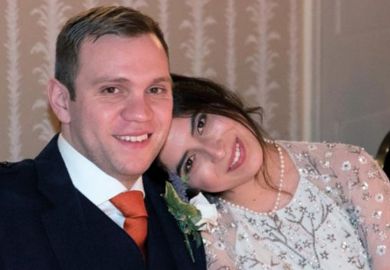Members of the University and College Union (UCU) at the University of Birmingham have voted to turn down teaching at the institution’s Dubai campus, amid growing concern about threats to academic freedom in the United Arab Emirates.
The vote came a day after Matthew Hedges, a Durham University PhD student specialising in Middle Eastern politics, was jailed for life in the UAE after being found guilty of spying – a sentence that has provoked a furious backlash from British politicians and researchers.
However, Sam Gyimah, the UK’s universities minister, has urged institutions not to cut their ties with the Arab state.
The Birmingham vote, which means that staff will refuse to cooperate with the Dubai campus unless explicitly required to by their contract, follows concerns for the rights of lesbian, gay, bisexual and transgender staff and students in the UAE, and possible exploitation of migrant workers during the next phase of construction.
Staff will turn down teaching unless explicitly stated in their contract, refuse to volunteer materials for the delivery of modules, and turn down requests to participate in exam boards.
James Brackley, president of the UCU branch at Birmingham, said: “UCU members at the University of Birmingham are outraged at the sentence of Matthew Hedges and the university’s refusal to address the serious issues we have raised regarding its campus in Dubai.
“The university must now engage meaningfully with us to provide guarantees about the safety and academic freedom of staff and students in Dubai.”
Mr Hedges had been detained in the UAE since May and held in solitary confinement for five months before being convicted of spying for or on behalf of the UK government.
Mr Hedges’ wife Daniela Tejada has said that her husband is “not a spy, he is a researcher”, and has criticised the response of the UK’s Foreign Office to his detention as “ineffective”.
Durham has put a temporary moratorium on all non-UAE national student researchers travelling to the UAE until the reasons for Mr Hedges’ detention are fully established. Ms Tejada has argued that academics should be given diplomatic immunity to protect them abroad.
But Mr Gyimah argued that student exchanges between the UK and the UAE should continue, although he added that this was “not in any way to suggest that we approve of what has happened in [Mr Hedges’] case”.
“Student exchange involves not just our students going to those countries but students from those countries coming here, and I think students from those countries coming here and experiencing what it means to live in a fully functioning democracy can only be a good thing,” Mr Gyimah said.
“So if you were to boycott these exchange programmes it is potentially undermining our ability to positively influence what is going on in these countries by getting their [potential] future leaders to understand, experience and share the values that we hold dear.”
A Birmingham spokesman said that the university was “surprised and concerned” by Mr Hedges’ detention.
“We have always respected the views of those staff who do not wish to engage with our Dubai campus and have been clear from the outset that opportunities to work in Dubai are optional for all staff, and indeed in most instances staff have actively applied for these roles,” the spokesman said.
He added: “Our priority is the safety of our staff and students and the delivery of a high-quality educational experience in locations across the world and we will continue to review and update our advice as appropriate to ensure this remains the case.”
Register to continue
Why register?
- Registration is free and only takes a moment
- Once registered, you can read 3 articles a month
- Sign up for our newsletter
Subscribe
Or subscribe for unlimited access to:
- Unlimited access to news, views, insights & reviews
- Digital editions
- Digital access to THE’s university and college rankings analysis
Already registered or a current subscriber? Login







